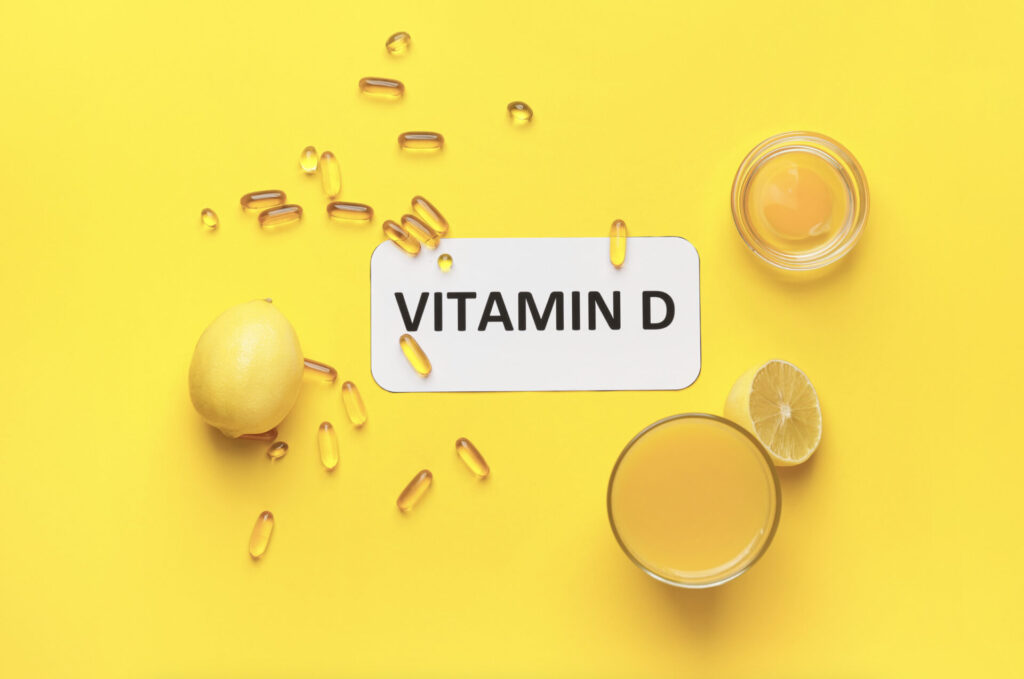
Vitamin D is a crucial nutrient that plays many important roles in the human body. It is produced when sunlight hits the skin, and can also be obtained through certain foods and supplements. Once in the body, vitamin D is converted into its active form, which then acts as a hormone to regulate the levels of calcium and phosphate in the bloodstream.
How does vitamin D work?
One of the primary functions of vitamin D is to help the body absorb calcium from the foods we eat. This is important for maintaining strong bones and teeth, as well as for other bodily processes such as muscle function and nerve signaling. Vitamin D also helps to regulate the immune system and reduce inflammation, which is important for overall health and disease prevention.
There are many factors that can affect vitamin D levels in the body, including age, skin color, geographical location, and diet. Low levels of vitamin D have been linked to a range of health problems, such as osteoporosis, autoimmune diseases, and certain types of cancer. Therefore, it’s important to ensure that you are getting enough vitamin D through sun exposure, diet, or supplements in order to maintain optimal health.
The Benefits of Vitamin D for Your Skin
Vitamin D is an essential nutrient that is produced by our skin when it is exposed to sunlight. It helps our body to absorb calcium, which is necessary for strong bones, teeth, and muscles. However, did you know that vitamin D is also great for your skin? In this article, we will discuss the benefits of vitamin D for your skin.
Firstly, vitamin D has been shown to help prevent skin aging. It does this by reducing the production of free radicals, which are harmful molecules that can damage our skin cells and cause wrinkles. Vitamin D also helps to promote skin cell growth and repair, which can help to keep our skin looking youthful and healthy.
Secondly, vitamin D is beneficial for treating skin conditions such as psoriasis and eczema. These conditions are caused by inflammation, and vitamin D has been shown to have anti-inflammatory properties. This means that it can help to reduce the redness, itching, and irritation that are associated with these conditions.
Lastly, vitamin D can help to protect our skin from the harmful effects of the sun. While it is important to wear sunscreen to protect our skin from UV rays, vitamin D can also help to protect our skin cells from damage caused by the sun. It does this by boosting the production of antioxidants in our skin, which can help to prevent DNA damage and reduce the risk of skin cancer.

What vitamin D is like?
Vitamin D is a group of fat-soluble secosteroids, which means they have a steroid-like structure with a broken ring. There are two main forms of vitamin D: vitamin D2 (ergocalciferol) and vitamin D3 (cholecalciferol). Vitamin D2 is synthesized by plants, while vitamin D3 is synthesized by the skin when exposed to sunlight.
Both forms of vitamin D are biologically inactive and need to be metabolized by the liver and kidneys to become active. Vitamin D2 is metabolized to 25-hydroxyvitamin D2, which is then converted to the active form of vitamin D, 1,25-dihydroxyvitamin D2. Vitamin D3 is metabolized to 25-hydroxyvitamin D3, which is then converted to the active form of vitamin D, 1,25-dihydroxyvitamin D3.
It’s worth noting that vitamin D2 and D3 are not equivalent in terms of their overall effectiveness and bioavailability. Research indicates that vitamin D3 is more potent and has a longer half-life than vitamin D2, which makes it a more effective form of vitamin D supplementation.
Exploring the Causes of Vitamin D Deficiency
Vitamin D is an essential nutrient that your body needs to maintain strong bones and teeth, support immune system function, and help your muscles function properly. However, many people around the world suffer from vitamin D deficiency, which can lead to a variety of health problems.
There are several factors that can cause a vitamin D deficiency. One of the most common causes is a lack of exposure to sunlight, which is the primary source of vitamin D for most people. If you live in a region with long, dark winters, or if you spend most of your time indoors, you may not be getting enough sunlight to produce adequate levels of vitamin D.
Other factors that can contribute to a vitamin D deficiency include a poor diet, certain medical conditions, and certain medications. For example, people with conditions that affect their ability to absorb nutrients, such as Crohn’s disease or celiac disease, may have difficulty absorbing vitamin D from their food. Similarly, some medications, such as anticonvulsants and glucocorticoids, can interfere with the body’s ability to absorb vitamin D.
If you suspect that you may have a vitamin D deficiency, it’s important to talk to your doctor. They can perform a blood test to measure your vitamin D levels and recommend appropriate treatment, which may include supplements or changes to your diet or lifestyle

Vitamin D: How much is too much?
Vitamin D is an essential nutrient that helps our bodies to absorb calcium, maintain healthy bones, and support our overall immune function. However, like with any other nutrient, it is possible to have too much of a good thing.
The recommended daily intake of vitamin D varies depending on age and gender, but generally ranges from 400 to 800 international units (IU) per day. It is generally safe to take up to 4,000 IU of vitamin D per day, but taking more than that can lead to vitamin D toxicity.
Symptoms of vitamin D toxicity include nausea, vomiting, constipation, weakness, and confusion. In severe cases, it can even lead to kidney damage and other serious health problems.
It is important to talk to your doctor before taking high doses of vitamin D supplements, especially if you have any underlying health conditions or are taking other medications. Your doctor can help you determine the appropriate dosage for your needs and monitor your vitamin D levels to ensure that you are not taking too much.
In conclusion, vitamin D is an essential nutrient that has many benefits for our skin. It can help to prevent skin aging, treat skin conditions, and protect our skin from the harmful effects of the sun. Be sure to get enough vitamin D through sunlight exposure or supplements to keep your skin healthy and glowing.








